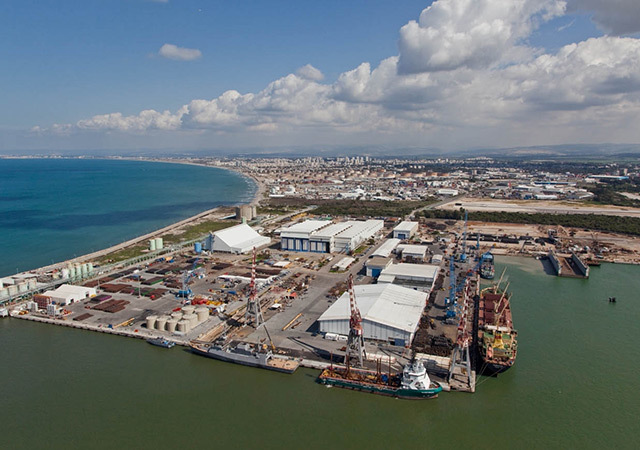
Among the companies visited by the UK delegation during the Israel pathfinder organised by the British Embassy was Israel Shipyards of Haifa.
The company has been around in one form or another for more than 50 years and is probably best known for the significant number of fast patrol vessels that it has built, many of them for the Israeli navy.
The current chairman is Schlomi Fogel; clearly a business leader who is unafraid to speak out and is clearly batting for the national interest. That includes the offshore industry where he wants to see a lot more direct Israeli business participation than has been the case so far.
He told the delegation that Israel Shipyards was keen to partner with experienced companies, working to mutual advantage. Moreover, with its track-record in high-quality shipbuilding across the decades, Fogel said the company was among the best-placed local enterprise for cashing in on the offshore oil and gas opportunity.
Moreover, he said the process of laying down a track record in engineering and construction, plus offshore logistics support and servicing of equipment had started and that Noble Energy had become the linchpin client in that regard.
Indeed, there was some success with winning Tamar work, including fabricating on sub-contract, subsea jumpers for installation offshore.
The company already had an excellent reputation for its workmanship, so that provided a good start, not least when it came to training welders to oil and gas industry coded standards.
“We had three or four months to train up the welders,” said Fogel.
“Once the material for the pipework arrived, we already had about 10 welders ready for the job. The last jumper package left the yard around the end of February.”
He pointed out that one of the cornerstones of Israel Shipyards success of recent years was the company’s willingness to get involved in strategic joint ventures, including subsea.
“Another contract that we started some months ago is the repair of deepwater drilling riser systems, including overhauling the syntactic foam buoyancy modules that wrap the drilling risers.
“Besides all this, we’re operating the only private port in Israel . . . four years to date. The main emphasis is on general cargo, but we’re already supporting the Tamar project.”
The relationship with Noble Energy in fact goes back about a decade and started out with Israel-Shipyards being asked to conduct running repairs to supply boats and repairs to rig equipment.
“Three years ago we entered a new era which included a shorebase facility. One of the projects included importing, storing and shipping out to sea, sections of the Tamar field export pipeline. That’s 150km. That was about six-months worth of work. At one time we had about 100,000 tonnes of pipework stored here.
“But the production platform they’ve just brought in and installed, well, they didn’t buy anything here in Israel, not even our capability of manufacturing the accommodation for the crew on the production rig,” said Fogel.
“We are putting a lot of pressure on the government; we have to make sure that the fields offshore Israel really are ours and that we really do learn how to operate them and build an Israeli oil and gas industry.”
The foundations of a number of joint ventures are being laid with forcing the local content issue seen as the core driver.
“They (Noble) brought everything in from Houston; we can’t let that sort of thing happen again,” said Fogel, acknowledging that his company did get Tamar work and is, as a result, better positioned to pursue work from the next big gas project . . . Leviathan.
“We intend to become one of the most efficient shorebase services provider there has ever been. And we have ample space with which to do it,” he added.